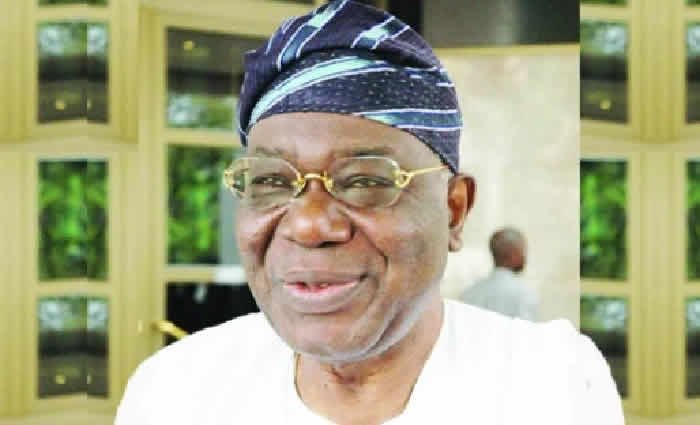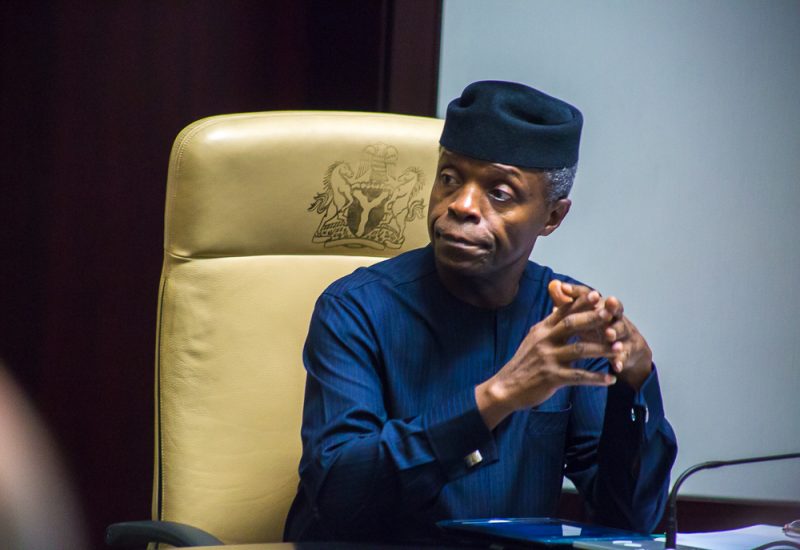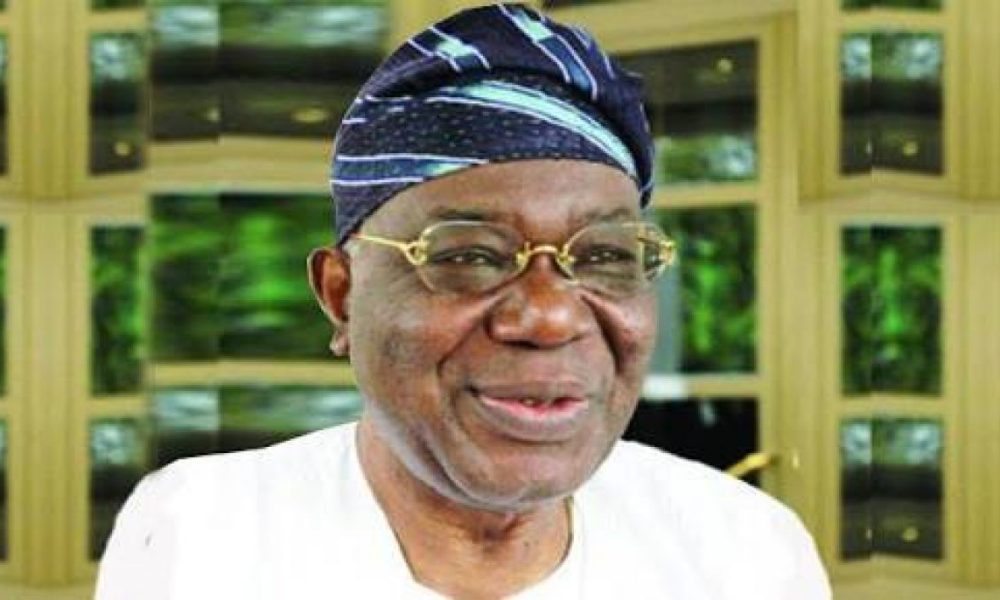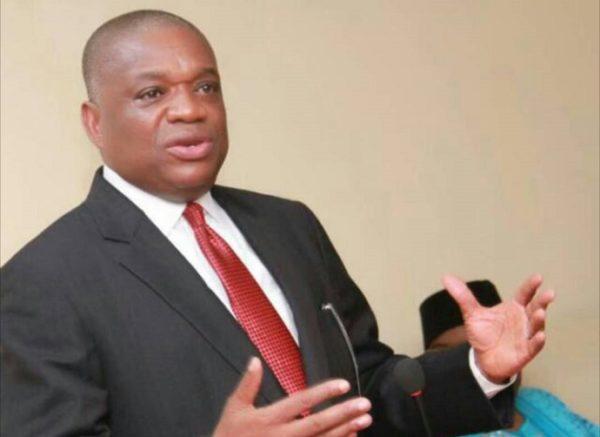By Dennis Onakinor
Summary
Dennis Onakinor takes a look at the glowing tributes being paid to the late Ernest Shonekan, who headed the Interim National Government (ING) set up by General Babangida in the aftermath of his annulment of the June 12, 1993 presidential election. Towing the line of argument put forward by Nobel Laureate Wole Soyinka in his 2006 memoir – “You Must Set Forth At Dawn,” he views Shonekan’s leadership of the toothless ING as not only patronizing, but an affront to the Yoruba ethnic group in particular, and Nigeria in General. He concludes that while Shonekan was, indeed, a distinguished corporate guru, he was not, contrary to the claims of his admirers, a national hero who unified the country at the time of the June 12 crisis.
Full Article
When ex-military President Ibrahim Babangida inexplicably annulled the June 12, 1993 presidential election that was presumably won by Moshood Abiola, he gambled on his conviction that the Nigerian citizenry, which he had subjected to all forms of socio-political manipulation for about eight years, would sooner than later forget his unpardonable act and move on with life. And truly, the gamble paid off even beyond his wildest imagination.
About three decades later, a remorseless General Babangida, who had brought Nigeria to the brink of a ruinous political crisis by his brazen annulment of that free and fair election, has metamorphosed into a “legendary leader,” a “symbol of national unity,” a “beacon of nationalism,” and a “great role model,” at least, in the eyes of his unscrupulous associates, sycophants, parasites, etc.
One only needs to encounter the glowing encomiums showered on the wily General on the occasion of his 80th birthday anniversary celebrations, on August 17, 2021, to understand that his praise-singers, comprising the who-is-who of the Nigerian ruling elite, live in an alternate reality where “alternative facts” counterbalance real facts (remember former President Trump’s Senior Adviser Kellyanne Conway).
Real or imagined, Babangida’s political rehabilitation is now a fait accompli. The death of ex-Interim President Ernest Shonekan on January 11, 2022 and related tributes further attest to this position. Shonekan, who hailed from Abiola’s Egba clan and Abeokuta hometown, was handpicked by an embattled Babangida to head his hastily-contrived Interim National Government (ING) as he reluctantly “stepped aside,” following crippling national protests that greeted his callous annulment of Abiola’s electoral victory. But, what has his death got to do with the political rehabilitation of the villainous General?
It is well known that Babangida has never expressed an iota of remorse for his annulment of the June 12 election. He had initially adduced lousy reasons that did not stand any scrutiny, but with the passage of time, he became dismissive of the whole issue. Hiding under the typical Nigerian leader’s escapist phrase of “let’s move the nation forward,” he has of late refused to even acknowledge the occurrence of the election annulment. Shonekan’s death has presented him and his cohorts with yet another opportunity to revel in denial on the issue.
From the tributes emanating from various official and unofficial quarters across Nigeria, there arises a feeling that the June 12 election crisis, which occasioned the emergence of Shonekan as the head of the ING, was not man-made, but a divine act. No reference, whatsoever, is made to the ignoble role of Babangida in the whole affair. Instead, all sing the praises of Shonekan, albeit superficially. Why and how he became the head of the ING, they refuse to say – albeit in a manner bordering on selective display of amnesia.
In what amounts to abysmal-level credulity, one of the leaders of the Pan-Yoruba socio-political organization, Afenifere, alluded to the role of divine forces in the emergence of Shonekan as the head of the ING: “Without doubt, Chief Shonekan’s heading of a government in Nigeria was another testament of how God works mysteriously … It was a reminder that God is the ultimate kingmaker who anoints those He pleases.” Well, all that can be said in respect of this ridiculous statement is “Amen.”
On his part, General Babangida had this to say: “Shonekan was a leader and an uncommon patriot … He was a man of ideas and ideals … It was, therefore, time for us to appoint him as head of the Interim Government to help stabilize the polity at a most trying period of our country’s political evolution … As Head of the Interim Government, he was able to consult with a broad spectrum of the Nigerian populace in charting a roadmap out of the political impasse at that time … “
Implicit in Babangida’s statement is that the June 12 election crisis, precipitated by his deliberate annulment of Abiola’s victory at the polls, was part of Nigeria’s “political evolution.” Nothing could be more absurd. Thus, a recapitulation of the circumstances leading up to the election annulment and its aftermath is herewith presented to refresh the memory in the face of efforts by Babangida-led revisionists to rewrite the history of June-12.
Having seized power on August 27, 1985, General Babangida quickly began to exhibit tendencies suggestive of his desire to civilianize his junta. For instance, he adopted the title of “executive president” in a clear break with his military predecessors’ title of “head of state.” This led to growing calls for him to return the country to civilian rule without delay. Responding, he resorted to all forms of socio-political engineering, deliberately designed to prolong his rule, in the manner of most military usurpers of power in the Third world.
In a winding transition programme lasting from 1988 – 1993, Babangida authorized the formation of political parties and then ordered their dissolution on flimsy grounds; banned and unbanned certain categories of politicians; detained and released others; established and changed electoral rules midstream; decreed the creation of two political parties – Social Democratic Party (SDP) and National Republican Convention (NRC), which he referred to as “a little to the left and a little to the right” of the ideological spectrum. If anything, both parties operated like government agencies.
When the much-postponed presidential election was finally held on June 12, 1993, and with more than two-thirds of the results so far released pointing towards an overwhelming victory for the SDP candidate, Abiola, General Babangida inexplicably annulled the election. He then hunkered down in his Aso Rock presidential villa as nationwide protests paralyzed the country – creating a political impasse.
As detailed in Karl Maier’s 2000 authoritative book, “This House Has Fallen: Nigeria in Crisis,” Babangida initially sought to explain away his brazen action. He argued that Abiola’s victory posed a “threat to national unity,” and then changed course to maintain that Abiola “had made promises to unnamed outside interests in order to raise money for his campaign,” even though he had earlier admitted that he was “the single largest contributor” to Abiola’s campaign. He also argued that Abiola would have made “a lousy president” and “would not have lasted six months” in power, adding that “the military would have toppled him because all the machinery for toppling was on the ground.”
In any case, following his self-induced political debacle, Babangida reluctantly “stepped aside” on August 26, 1993, handing over power to a diarchical “Interim National Government (ING)” headed by Ernest Shonekan, a former Chairman and CEO of the giant conglomerate – United African Company (UAC). He had previously served as head of Babangida’s transitional council.
Shonekan’s appointment as head of the ING was an undisguised attempt at placating the Yoruba ethnic group embittered by the annulment of the electoral victory of its indigene – Abiola. In reality, very few people were deceived, for Babangida had deceitfully retained the powerful General Sanni Abacha as Defence Minister in the diarchy. Hence, it was an open secret that Shonekan was only a figure head, while Abacha was the de facto leader. Truly, the notorious serial coup-plotting General Abacha soon proved his mettle as he effortlessly toppled the ING in a palace coup on November 17, 1993.
Amongst those who vociferously opposed Babangida’s annulment of the June 12 election was the 1986 Literature Nobel Prize Laureate, Wole Soyinka. In his 2006 memoir, “You Must Set Forth At Dawn,” Soyinka denounced Shonekan’s ING as an affront to the Yoruba ethnic group in particular, and Nigeria in general. To him, Babangida’s selection of Shonekan, who hailed from Abiola’s Egba clan and Abeokuta hometown, amounted to a “patronizing gesture” and a “sectarian appeasement.”
Little wonder, pro-democracy activists, like the fiery Gani Fawehimi, welcomed General Abacha’s palace coup in expectation of an eventual actualization of Abiola’s June 12 mandate. In this wise, they miscalculated spectacularly. Abacha quickly transformed into a vicious tyrant, rounding up both real and imaginary opponents. Specifically, he repressed Abiola’s Yoruba ethnic group, purging the military of its “dissident” elements. However, it must be said that the case of the Yorubas was not helped by the treachery of some indigenes, like the duo of Lamidi Adedibu and Azeez Alao Arisekola, who openly sided with the tyrant in his repression of their fellow kinsmen.
General Abacha’s bid to decimate the leadership of the Yoruba ethnic group saw him jail the former military ruler, General Olusegun Obasanjo, on unfounded allegations of a coup plot in February 1995. Next was his second-in-command, General Oladipo Diya, who was arrested in December 1997 on similar allegations, and sentenced to death. The sight of a sobbing and pleading General Diya was, indeed, a low point for the Yorubas in course of General Abacha’s unbridled tyranny.
Meanwhile, Abiola, who was arrested for treason back in June 1994 and subsequently detained in solitary confinement, never regained his freedom despite related appeals from world leaders, including Nelson Mandela. He eventually died of heart failure in mysterious circumstances on July 7, 1998, exactly one month after the June 8, 1998 surprising death of his jailer – Abacha. Rumours had it that the demise of both adversaries was orchestrated “in high places,” so as to banish the ghost of June-12
There is no doubting the fact that Shonekan was a distinguished corporate guru, who may have fought many boardroom battles on his way to the top of the giant UAC conglomerate. However, that he was a national hero who unified the country at the time of the June 12 election crisis (as claimed by his admirers), is a matter of opinion. Perhaps, Nobel Laureate Soyinka aptly characterized him in his aforesaid memoire: a “usurper,” an “obliging figurehead or point man for Babangida’s creative ploys,” and a “recycled tool of despotic machinations.”
In apparent deference to the aphorism, “do not speak ill of the dead,” Soyinka has so far maintained a studied silence over Shonekan’s death. Were he to erupt, he would definitely have nothing but opprobrium for the “guguru” General Babangida gave to Nigerians in place of the “gurudi” he brazenly denied them.
Dennis Onakinor, a global affairs analyst, lives in Lagos – Nigeria. He can be reached via e-mail: dennisonakinor@yahoo.com





